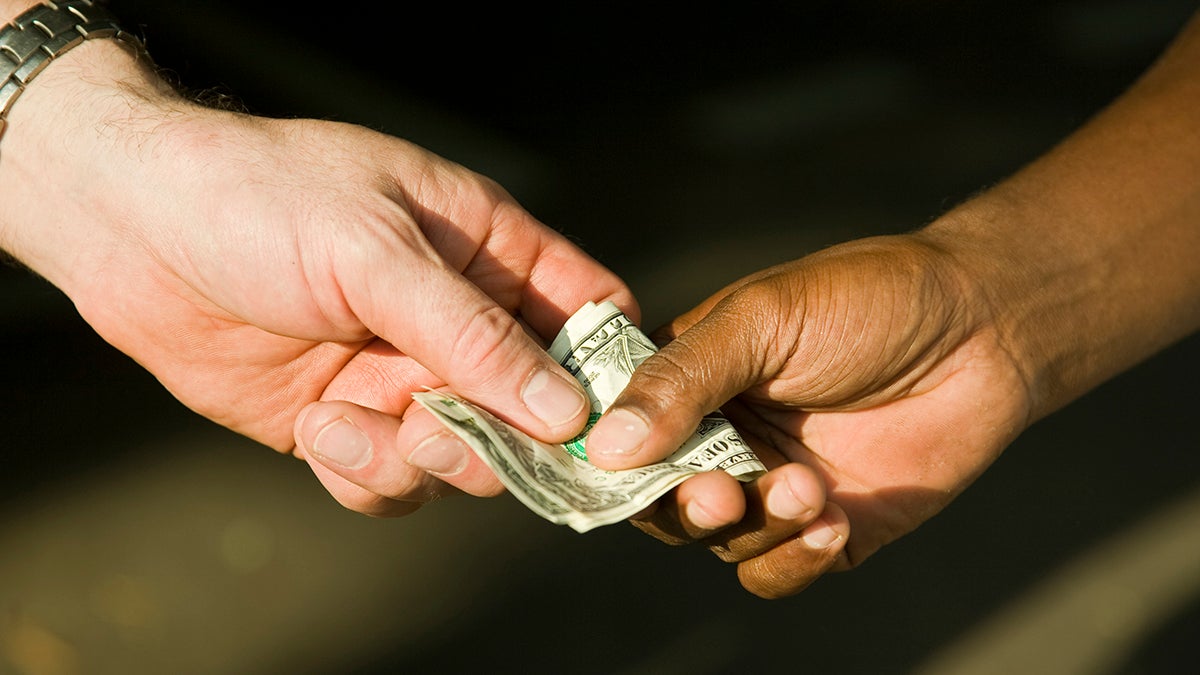News flash: Improper payments to college athletes is #oldnews

"I can’t change the NCAA’s rules, but I can’t help but wonder why it is that an industry...that produces millions, if not billions of dollars, thinks that the culprit is the kid who makes no money, who helps generate income, who takes nothing. What disturbs me is the focus on the player, rather the better focus on the System."
-NBPA Executive Director Michelle Roberts to the Sports Business Journal
Should we be concerned with the flurry of law enforcement investigations of payments made to college athletes and coaches? To help with that idea, let’s look at history before raising your concern or placing blame.
This historical and economic perspective will be helpful for student-athletes, parents, coaches or others in the high level intercollegiate sports space to understand the temptations that have haunted the arena for over a century. We all need to better understand what Michelle Roberts refers to as the “system.”
IMPROPER PAYMENTS MADE TO STAR COLLEGE ATHLETES.
That, or a similar headline, was probably first written about college sports more than 100 years ago. What?

Yes, college student James Hogan played football for Yale in 1904. In exchange for his skills and leadership as team captain he received a vacation to Havana, Cuba from Yale. He was among a generation of what were called “tramp” athletes who went from school to school enticed by the best offer. That was 114 years ago.
Over time cash payments, gifts and other benefits became so extreme that in 1948 at the forty-second annual NCAA convention instituted what was called the Sanity Code, a mutual agreement for all NCAA member institutions to stop the benefits. Almost immediately the Code was violated. It’s ineffectiveness was evident when it was fully rescinded by the NCAA in 1951. It was, pretty quickly, back to business as usual.
It was gambling in the 1950s that dominated the college scandal headlines. The City College of New York point-shaving scandals were the focal point.
In the early 1960s another gambling scandal, maybe best chronicled in the book Foul! The Connie Hawkins Story by David Wolf, dominated headlines. Hawkins maintained his innocence until his death but his career was damaged to where he never played in college at Iowa. He was a freshman when he was implicated in a gambling scandal. The charges even delayed his professional career. He did not play his first game in the NBA until he was 27 years old.
In all of these early collegiate gambling scandals players were typically paid hundreds of dollars to miss a shot, giving professional gamblers an advantage that could make thousands for them on a single bet. The athlete received a few dollars fulfilling short-term needs.
In the late 1980s sports agents Norby Walters and Lloyd Bloom were the headliners. They recognized that they could pay potential high NFL draft picks relatively small sums of money - as little as $5,000 - and secure them as clients. This strategy led to Walters signing 50 players as clients, five who were projected to be first-round picks in the 1987 draft. The agents had little fear of illegality—we should all be clear that breaking the rules of the NCAA does not always equate with breaking the actual laws of the land. Walters likened the NCAA rules to those of the Knights of Columbus. He used the analogy in many interviews, asserting that just like the fraternal organization that had no jurisdiction over him, neither did the NCAA. With that in mind, he had no incentive or incentive to abide by their rules.
The NCAA essentially only has enforcement powers against member institutions. When it issues an order to a school to give up a championship, to not allow a coach or student-athlete to participate it has no power to take action directly on individuals, and certainly not against a sports agent or other outsider.
Walters and Bloom exploited a gap in the system. An opportunity to pay out $5,000 initially but then take 3% of the millions in earnings a football player might have over his playing career was worth the chance. That was the last time federal prosecutors aggressively brought actions against college sports parties for excessive compensation, until today. There the feds brought the case under mail fraud statutes, largely related to the athletes involved mailing false statements regarding their eligibility across state lines. In the end the agents were successful in court and served no time.
Of course there are other scandals – SMU received the death penalty for problems in the football program, Michigan basketball of the Fab Five era and the allegations of North Carolina’s “fake” classes hang over the NCAA.
All of these college sport scandals have a single common element: opportunistic behavior. The economist Oliver Williamson crystallized the term opportunism in his work Markets and Hierarchies. Generally opportunism is when people take action because the opportunity presents itself without immediately foreseeable consequences. They do so even though they don’t necessarily have a plan and sometimes bypassing their own ethical standards. This can be the case for both the givers and takers of illicit funds.
I love Williamson’s definition. It stuck with me from my earliest studies of economics. He narrows even further “opportunistic behavior” as “self-interest seeking with guile.” What has stuck with me is the emphasis on “guile.” New Oxford Dictionary defines guile as “sly or cunning intelligence.”
Overwhelmingly that is the context that we deal in with college sport. The opportunity for guile exists because there are those who are easy to prey upon, namely student-athletes. They are subject to sly or cunning intelligence. The self-interest of coaches, schools, gamblers or apparel companies may vary, but they all see the opportunity. Do they choose to be sly? How many view their actions as cunning intelligence? Certainly many think they are outsmarting the college sport system. Does the student-athlete choose to compromise his or her ethics? Are their families knowingly deviating from their personal ethics because of the opportunity? I think if it is the case that there is opportunism on the part of student-athletes should we view their roles differently from the adults in this fray?
The best of ethics can be overtaken by need. In the Norby Walters scandal the most memorable quote was from an athlete who took $1,000 from an agent in 1979:
I knew I did something wrong. I didn’t want the NCAA to do something to [his college], but I just needed some money to pay some bills. I didn’t want to sign with him [the agent] but I just needed some money to pay some bills.
It is those instances where there is greed that anyone viewing these scandals might pause and distinguish the wrongness of the situation from those where there is need. If a kid or his family actually need the funds involved and he sees himself as trapped in a system that denies adequate compensation, I remain somewhat sympathetic, although I abhor the rule breaking. When a coach receives an excessive payment to influence an athlete or an apparel company makes one to a coach or young athlete, the wrongdoing strikes me as much more severe. The recent small payments to basketball coaches fall into that category.
Know that for young athletes with promise the opportunity to participate in some form of underground economy is likely to be there. Scandal in sport is not a U.S. problem alone, but no one else has a college sport scandal; the U.S. is the lone country in the world with this massive college sport enterprise. The Carnegie Report issued in 1929 asked two questions that remain relevant and unanswered today:
What relation has this astonishing athletic display to the work of an intellectual agency like a university?
How do students, devoted to study, find either the time or the money to stage so costly a performance?
We should be concerned to the extent that student athletes continue to be victimized.
This leads to a discussion I’ll deliver in future pieces about the “system,” paying student-athletes and the impact that could have on opportunistic behavior and whether or not that economic shift would curb “self-interest seeking with guile.”
Kenneth L. Shropshire is the CEO of the Global Sport Institute and adidas Distinguished Professor of Global Sport as Arizona State University and Endowed Professor Emeritus at the Wharton School, University of Pennsylvania. Among his 13 books is The Business of Sports Agents.
Related Articles
How the FBI investigation into alleged improper payments unfolded
Opinion: Let's stop creating an atmosphere for scandal and pay college athletes
Opinion: It's time to end the notion of NCAA amateurism


